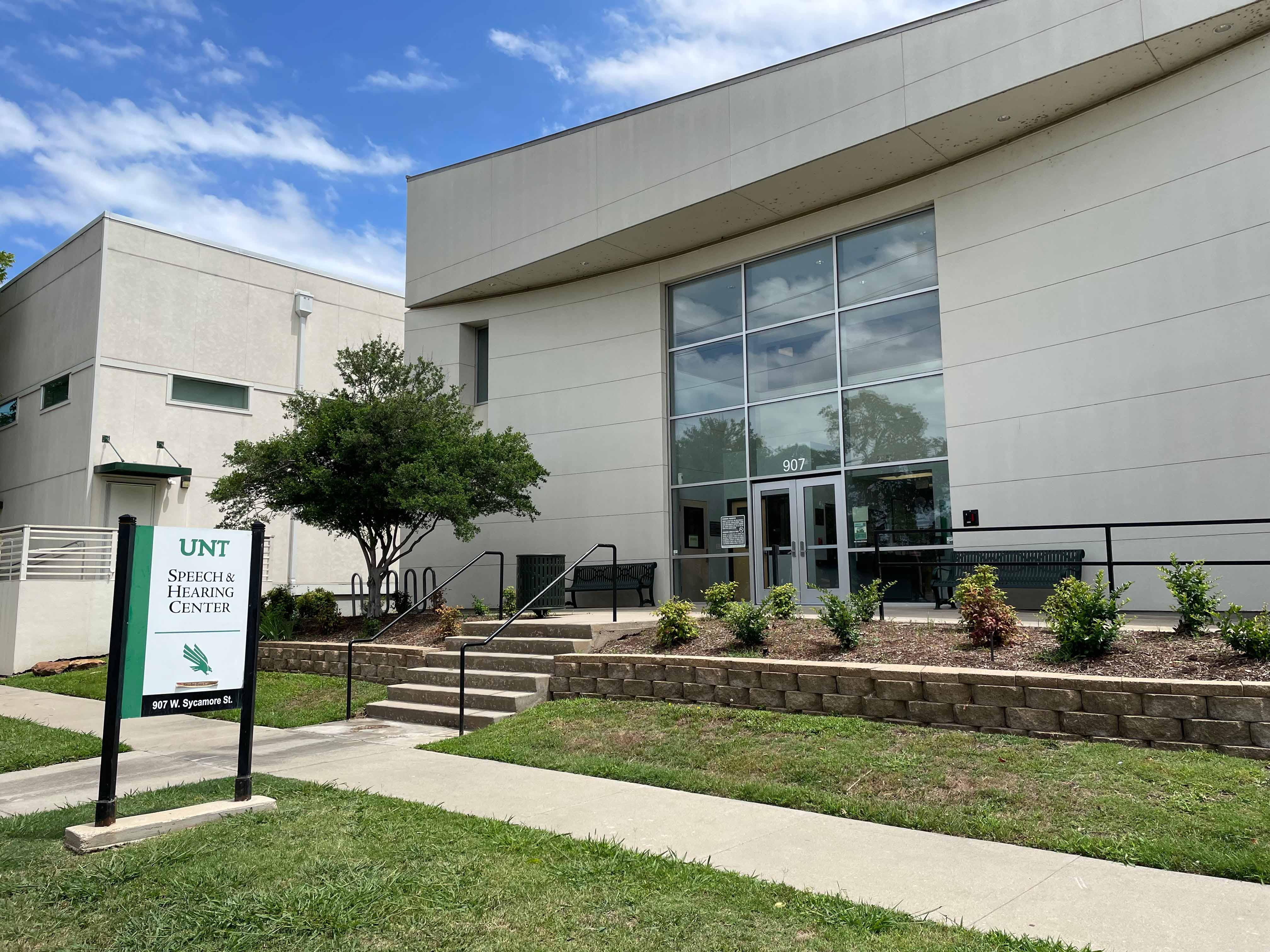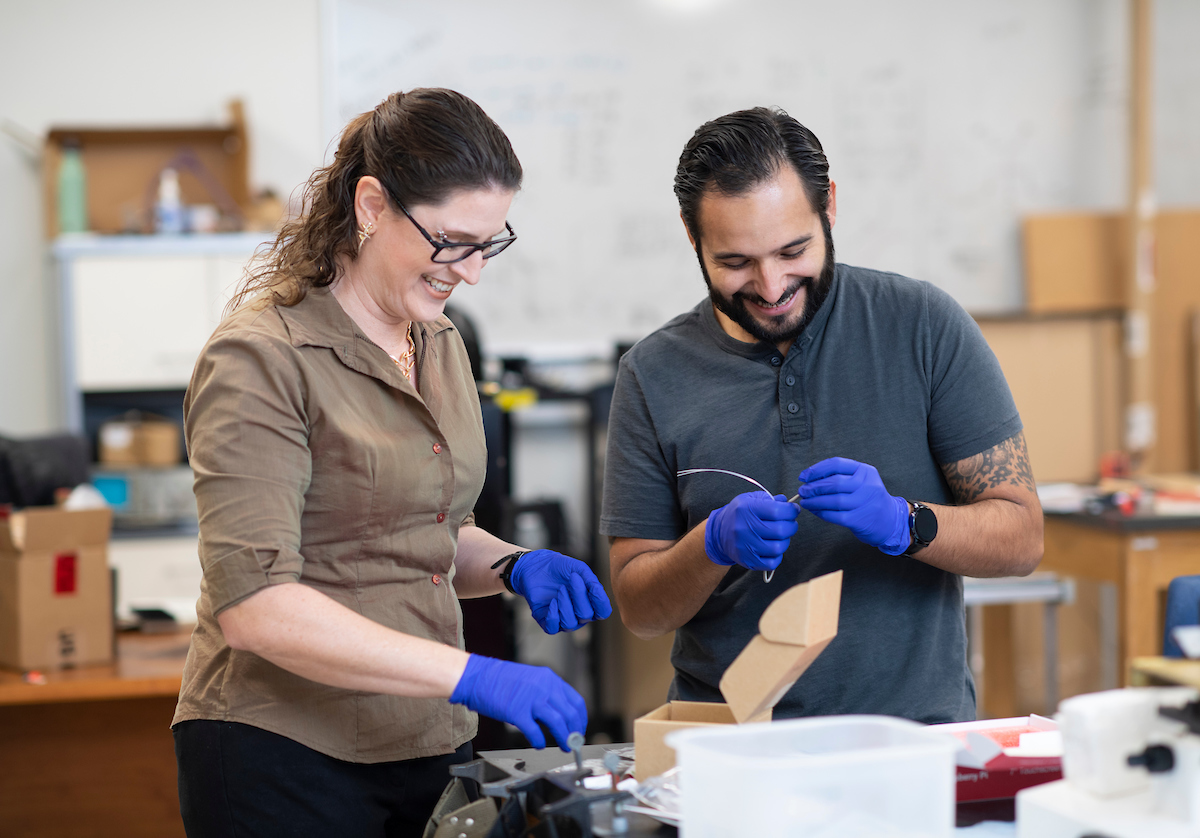Health Sciences (Ph.D.)
- HPS Degree Programs Home
- Undergraduate Degrees
- Graduate Degrees
- Minors, Certificates, Continuing Education
- Grad Track Programs
Become a health sciences educator, researcher or leader.
ABOUT OUR PROGRAM
Health care systems are ever-changing and under constant pressure to improve the quality of care and outcomes for their consumers. Leaders in the current health care delivery environment seek a broad-based graduate education that offers the opportunity to assume a leadership role in diverse health care delivery settings that serves a broader spectrum of the population.
This program provides a broad foundation in public health concerns, research and evaluation methods, and health and social policy analysis to meet the demands of a dynamic health services delivery environment. The Ph.D. program in Health Sciences (HS) provides opportunities for specialized expertise across several Concentration areas: Applied Aging and Rehabilitation Science, Audiology & Speech-Language Pathology, and Behavioral Analysis.
Our core faculty has a vast array of experience in a variety of health care delivery environments and broad expertise in health care and health-related research and policy. The focus will be on developing academic research scientists who are interested in contributing to the health sciences discipline through research, education, and policy analysis.
Graduates of the Ph.D. Program in Health Sciences will be prepared to function as educators, researchers, and leaders. You may find future graduates working as university faculty; health research policy analysts with government and non-profit agencies; or as health systems administrators in the public or private industry. The degree program graduates will be prepared to address research, education, service delivery, and policy challenges requiring an interdisciplinary perspective across various service settings.
General Degree Requirements
Specific requirements include:
- 18 semester hours in foundation core courses covering health disparities across populations and various research designs and statistical analyses relevant in the field of health sciences
- 15 designated semester hours in the student's chosen concentration
- 9 semester hours of approved electives
- A minimum of 9 semester hours of dissertation
Prospective students should be aware that the Health Sciences Ph.D. is a traditional on-campus program with most classes scheduled during regular business hours. If you have any questions, please email rhs@unt.edu.
Application Process
The UNT graduate application is a concurrent multi-part process. All graduate applicants
must apply to UNT as well as to the department where the graduate program is located.
The application process is described below:
Apply to UNT
To apply for Fall 2026 - click here to learn how to use the new streamlined UNT Admissions GradCAS application system. All application materials (including self-statement, resume, sample of scholarly work, and letters of recommendations) must be submitted in GradCAS for admissions consideration for Fall 2026.
International Students
All international applicants to UNT must show proof of English language proficiency.
More information is provided here.
Apply to the Health Sciences Ph.D. program
Admission to the Ph.D. program is a holistic process that includes a broad assessment of the applicant's background and potential for success. You will therefore need to provide the following information:
Submit the following:
Statement of Intent that includes:
- Rationale for choosing the Health Science Ph.D. program
- Your short and long-term career goals
- Your qualifications and readiness for doctoral study, including research experiences and interests
- Discuss a specific area in Health Sciences on which you would like to focus during your doctoral studies
Current resume
Sample of previous scholarly work (may include prior research papers, published articles, written work that demonstrates research abilities)
Submit three letters of recommendation
Letters should be from former professors and related professional supervisors that
speak to your academic capability to be successful in a doctoral program. Must be
submitted on appropriate letterhead with an original signature.
Interview
Completed applications received by the December 1 deadline are reviewed by an Admissions
Committee and applicants may be asked to participate in an interview with faculty
members as final step in the application process. Interviews are typically conducted
in February, with offers of acceptance distributed by mid-February.
Fall 2026 priority application deadline is December 1, 2025. Applications that are submitted by the priority deadline will receive priority by the admissions team. Fall 2026 regular application deadline is January 31, 2026.
If you have any questions, please contact us at rhs@unt.edu
Health Research Degree Concentrations

Applied Aging and Rehabilitation Science
This concentration area is designed for the health science practitioner who is interested in making contributions to the discipline through research, while maintaining their focus on active engagement with vulnerable populations, such as older individuals and those with chronic illness or disability. In the current health care environment, the emphasis is on increasing quality, decreasing the cost of service delivery and on achieving positive, measurable outcomes that improve the health of vulnerable populations and that make services accessible and affordable. The program relies on a science-practitioner model to develop researchers, educators and leaders who will make a positive impact on the health care environment.
- AARS 6800 - Social Policies for Health and Aging
- AARS 6810 - Global Perspectives on Aging and Disability
- AARS 6820 - Community Integration and Participation
- AARS 6830 - Disability, Health and Functioning
- AARS 6840 - Organizations for Aging and Health Services

Audiology and Speech-Language Pathology
The mission of the Ph.D. with a major in health sciences research and a concentration in audiology and speech-language pathology (ASLP) is to prepare researchers, educators and leaders in the academic fields of audiology and speech-language pathology with an emphasis on interdisciplinary collaboration. This program focuses on developing competent researchers, educators and leaders to be at the forefront of knowledge for improving the overall quality of life of persons with speech, language and hearing disabilities. Graduates are expected to demonstrate advanced knowledge and technical expertise in addressing critical areas of research, education, service delivery, clinical practice and professional policy. Courses in the concentration include:
- ASLP 6991 - Instrumentation in Speech and Hearing Sciences
- ASLP 6992 - Advanced Neuroanatomy and Neurophysiology of Communication, Audition and Vestibular Functions
- ASLP 6993 - Advanced Topics in Audiology, Speech and Language
- ASLP 6994 - Auditory and Language Processing in the Brain
- ASLP 6995 - Communication and Communication Disorders Across the Life-Span

Behavior Analysis
The mission of the Ph.D. with a major in health sciences research with a concentration in behavior analysis is to train the next generation of behavioral scientists and scientist-practitioners to work across disciplinary boundaries to expand scientific understanding and capability and to solve socially relevant problems. Within the behavior analysis concentration, students can focus on a variety of research and application areas such as populations with learning differences (Autism and Developmental Disorders), social justice, teaching sciences, animal behavior, behavioral neuroscience, and behavioral health and contingency management. The program relies on a junior-colleague model to develop world-class researchers, educators, and leaders inside and outside the academy. Courses in the concentration include:
- BEHV 6010 - Survey of Literature in the Experimental Analysis of Behavior
- BEHV 6020 - The Conceptual Basis of Radical Behaviorism
- BEHV 6140 - Advanced Strategies and Tactics in Behavior Analytic Research
- BEHV 6200 - Behavior Analysis from a Systems Perspective
- BEHV 6410 - The Dissemination and Application of Behavior Analysis
Scholarships & more
The Department of Rehabilitation and Health Services in the College of Health and Public Service offers thousands in scholarships to students each year, including:
- Cora A. Martin Scholarship
- Rapoport/Friedsam Scholarship
- Harry R. Kendall Scholarship
Student Organizations
Social Media
- Rehabilitation & Health Services Facebook
- Rehabilitation & Health Services X
- Active Minds Facebook
- Collegiate Recovery Program at the University of North Texas Facebook
- Collegiate Recovery Program at the University of North Texas X
- Eagle Peer Recovery Facebook
- North Texas Rehabilitation Association Facebook
- Office of Substance Misuse and Mental Health Recovery Research Facebook
- Office of Substance Misuse and Mental Health Recovery Research X
- Pathways for Allied Health Success Facebook
- Recovery to Practice Facebook
- UNT WISE Facebook
YOUR ADVISOR
Graduate students are advised by department faculty. Program Director Denise Catalano
can help connect you with potential faculty advisors based on your unique interests.
Rachita Sharma, Ph.D., LPC-S
Chair of Rehabilitation & Health Services
Coordinator of Health Sciences Ph.D.
Coordinator of Health Sciences Ph.D.

ABOUT US
The Department of Rehabilitation & Health Services mission is to prepare professionals to enhance the lives of diverse populations including the aging population, individuals with disabilities, substance use disorders and/or chronic health concerns through training in advanced research, education and service delivery, or clinical practice.
Our department is comprised of community engaged academics providing an education that reaches beyond the classroom.